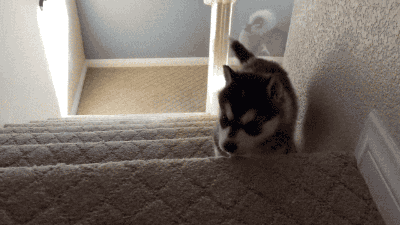
I don’t know if it was the pressure of the Olympic Games or a season-long worldwide outbreak of mushy ice, but the skating disasters were frequent and painful in 2017-18. As a result, I’m spreading them over three posts this summer, so we can all relive the falls and pops, the resigned shrugs and the ugly tears.
I’ve stayed away from any performances that were too tragic to be funny, although I have included a few juniors this year. Some athletes gave us one disaster after another, so I’m featuring one nightmare performance per skater. I’ll try to be gentler on these guys’ feelings than the ice was on their butts.
Patrick Chan, skate Canada Free Skate
Nobody ever really expects a clean free skate from Patrick Chan, but this was a mess even by his standards. A fall on his opening quad toe loop seemed to rattle him, and he couldn’t get any lift off the ice for the rest of his performance. He doubled four planned triple jumps, including both Axels, and threw away an easy triple toe loop that the crowd cheered for, presumably relieved to see him stay on his feet. Meanwhile, on NBC, Tara and Johnny pulled no punches, taking Chan to task not only for his errors on the day but for his cautious approach to the season as a whole.
Javier Fernandez, cup of China Free Skate
Fernandez is such a polished and charismatic skater that he sometimes gets away with off-kilter landings, but his sloppy habits caught up with him at the Cup of China. Even the clean jumps looked out of control in this performance, like he was course-correcting in mid-air. And the misses – including two of his three planned quads – showed a fatal lack of focus. Fernandez can often make fans forget about his technical errors by dialing up the showmanship, but he looked so defeated by the halfway mark that the upbeat Man of La Mancha soundtrack came off as ironic.
Daniel Samohin, Skate America Free skate
In this year’s weird, injury-laden Skate America, the most devastating on-ice moment belonged to Samohin. He went down hard on a quad toe loop, absorbing most of the force in his shoulder, but looked all right. Then, he fell again, on a quad salchow, and broke his fall with his wrist. Samohin sat up, tears streaming down his face, and tried to pop his shoulder back into the socket while his program music continued in the background. Fans on the scene reported with relief that he was in the stands the next day, wearing a sling and picking up sympathetic girls.
Maxim Kovtun, Russian National Championships Short Program
Kovtun elicited some sympathy in 2014 for losing his shot at the Olympics to politics and Plushenko, but he blew all hope of redemption with his meltdown at 2018 Nationals. He often builds up false hope with a solid first jumping pass, as he did here with a slightly loose but landed quad salchow-double toe loop. Things fell apart soon after, though, with a zero-credit popped toe loop and an underrotated triple Axel that he rolled out of. The judges even savaged him on his spins, which were awkward and out of position. But the most cringeworthy part might have been watching Kovtun try to interpret a flamenco piece totally unsuited to his style.
Jason Brown, United States National Championships Free Skate
As much as we all wanted to believe that the men’s field at Nationals was wide open, it looked like Jason Brown had his trip to Pyeongchang on lockdown as he took the ice for his free skate. Despite a wobble on a triple Axel in his short program, he was sitting in third place, and all of his chief rivals (except for Nathan Chen, who hadn’t skated yet) had made significant errors in their free skates. Brown’s advantage over more technically powerful skaters has always been his bulletproof consistency, so how could he lose? He began with an unusually brutal fall on his quad toe loop: he bounced off both toe picks after underrotating, and the momentum sent him into the boards. Most of the time, Brown can find his groove again after a mistake like that, but his nerves clearly got to him. He proceeded to miss jumps that he’d literally never missed before in a major competition. He dropped down to sixth place overall, guaranteeing that he’d have to watch the Olympics from home.
Stephen Gogolev, Canadian National Championships short Program
If it seems unfair to criticize the performance of a 13-year-old boy, let’s be clear: my criticism is directed not at Gogolev himself, but at whomever decided it was a good idea to have a child too young for even the World Junior Championships to compete as a senior at Nationals. I have no doubt that Gogolev will emerge as a big star for Canada in a few years, as long as he stays healthy and continues to commit to the sport. This program’s one bright spot, a soaring quad salchow-triple toe loop, speaks to that potential. But Gogolev’s stamina had already begun to wane as he launched a troubled triple Axel, and by the time he popped a planned triple lutz late in the program, he looked completely out of gas, physically and emotionally. His blank-faced performance – which garnered appropriately conservative components marks – reinforced the impression that he should have been allowed to take home an easy second junior title instead of fading to 10th place as a senior.
Han Yan, four continents Championships Free Skate
Yan’s career has had its ups and downs, but he usually acquits himself well at Four Continents: he’s taken bronze three times. This season’s event should have been a warm-up for the Olympics and a chance to show the judges how he’s remade himself as an expressive performer with smooth, easy edge control. The loveliness of this program’s choreography infused this meltdown with irony, as both of Yan’s falls occurred so perfectly on rhythm that they looked almost intentional. It was the timing that got him: he struggled to place his takeoffs at the right moment, which slowed his momentum on almost every jump. Even as he seemed to rally in the second half, he couldn’t get the back-end speed for a triple-triple combination. His growing frustration broke the intensity of his music, and his technical errors dragged him down from fifth in the short program to tenth overall.
Denis Ten, Olympic Games Short Program
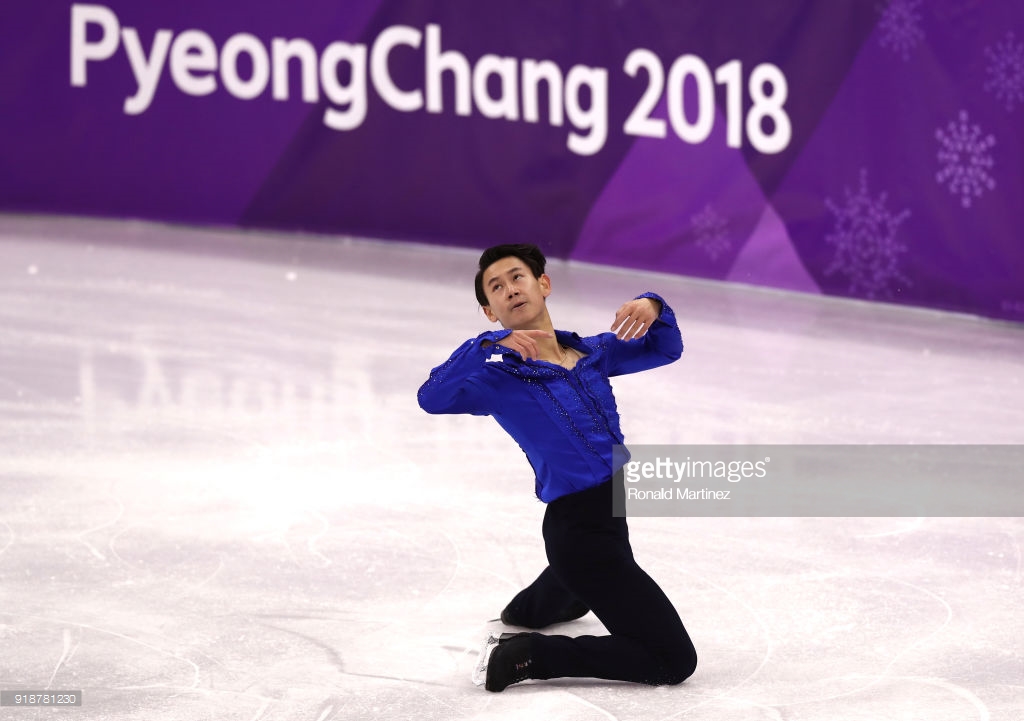
Ten’s performance occurs at 0:32:00 in this full replay of the men’s SP.
At any Olympic Games, we’re liable to see skaters competing past their prime, but Denis Ten’s plunge from the podium to the footnotes might be the steepest and most tragic of all time. Ten has never been the most consistent, but he usually brings his best when it matters most. In Pyeongchang, however, he couldn’t bring enough to even qualify for the free skate. A popped salchow – good for no points at all in the short program – was the biggest drain on Ten’s score, but he also got zero credit for a bungled combination spin. Ten was off his game artistically before the errors set in, though; while his edges were stunning as ever, he kept rushing ahead of his music, rendering his performance flat and awkward.
Nathan Chen, Olympic Games Short Program
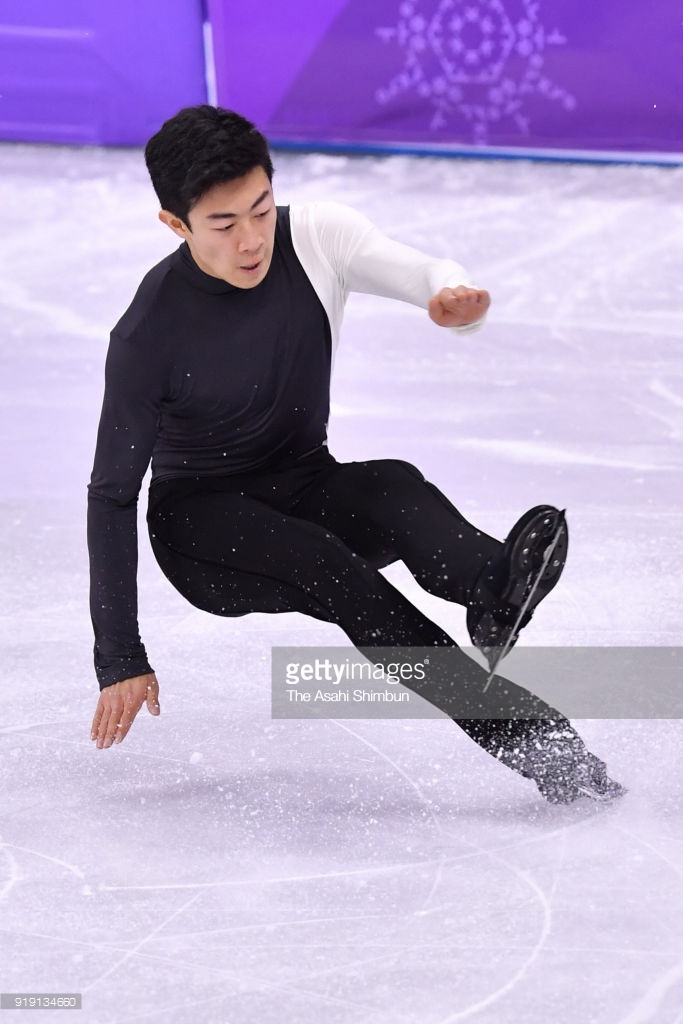
Chen’s performance occurs at 3:31:00 in this full replay of the men’s SP.
Nathan Chen arrived in Pyeongchang as a favorite for a medal. Instead, he fell on his quad lutz, missed the combination on a messy quad toe loop, barely saved his triple Axel, and placed 17th in the short program. The next day, he’d go on to win the free skate, but the setback was insurmountable. It was all very Kurt Browning-esque in the worst way, right down to the gorgeous step sequence that he nailed toward the end.
Morisi Kvitelashvili, Olympic Games Free Skate
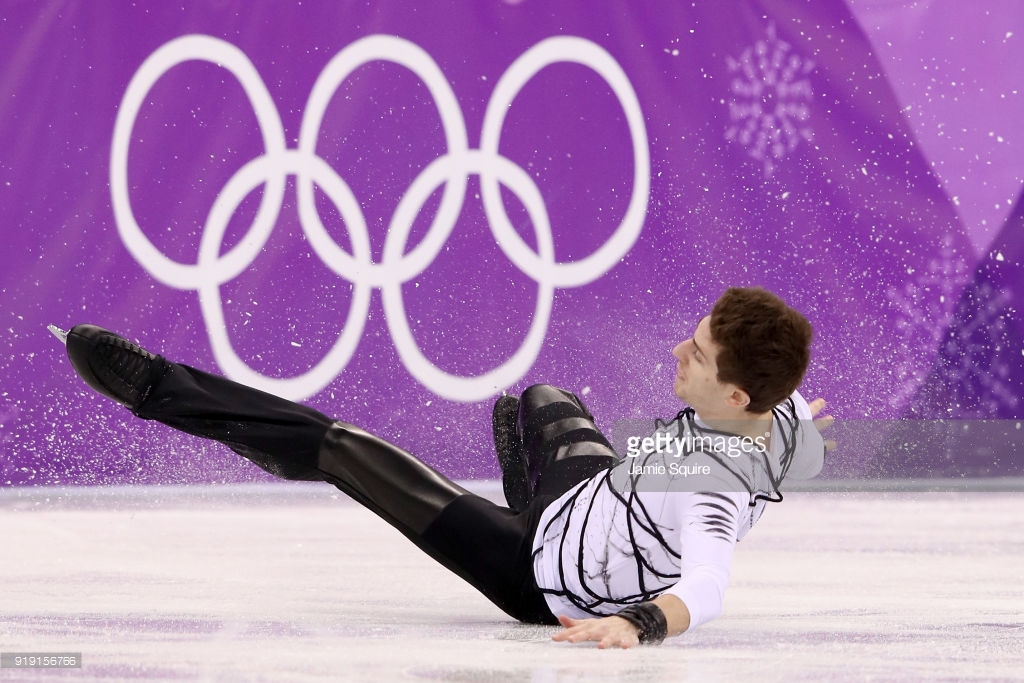
Kvitelashvili’s performance occurs at 0:54:00 in this full replay of the men’s FS.
Lost in the shuffle competing for Russia, Kvitelashvili switched his affiliation to his parents’ native Georgia in 2016, a gambit that brought him to the Olympics. A springy jumper whose dynamic Imagine Dragons free skate made his shaggy charisma look like artistry, Kvitelashvili might have made a real name for himself in Pyeongchang – in the alternate universe where he didn’t fall four times in the free skate. His opening triple Axel was really nice. For the sake of his dignity, let’s forget the other four minutes even happened.
Dmitri Aliev, Olympic Games Free Skate
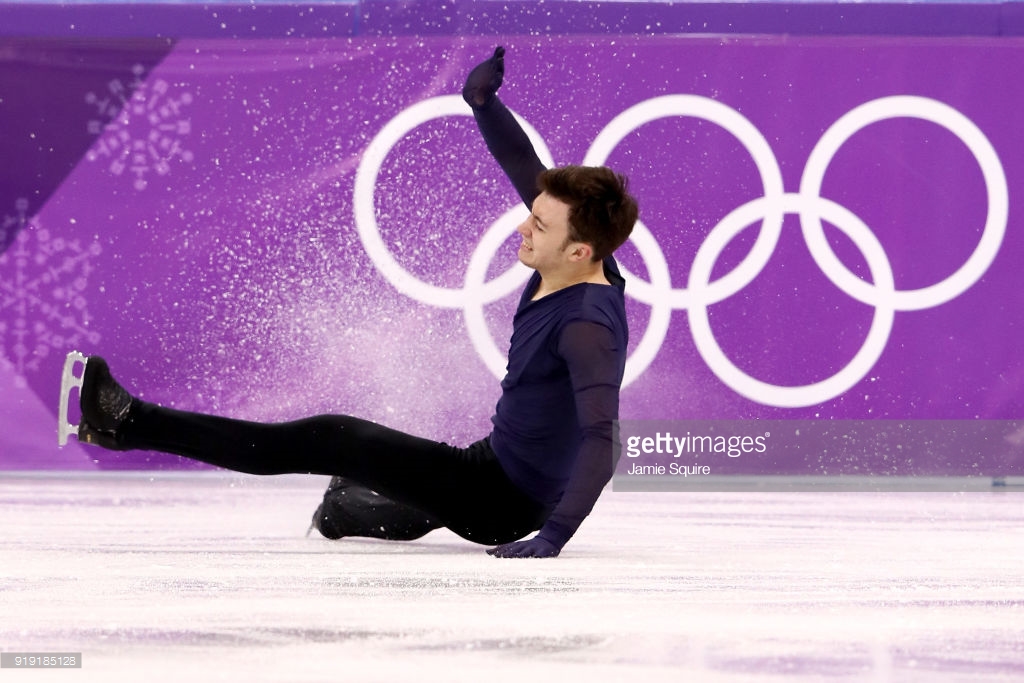
Aliev’s performance occurs at 3:09:00 in this full replay of the men’s FS.
This explosive and expressive Russian teenager lived up to his potential in the short program in Pyeongchang, scoring just shy of 100 points in one of the finest performances of that night. Sitting in fifth place and skating in the final warm-up, Aliev could have spoiled for a medal. Instead, he tumbled on a poorly timed quad toe loop, a fall so hard that he looked dazed getting up, then fell again on the triple Axel that followed it. He managed some fine moments here and there, but the pain in his right hip and thigh strained his face on every landing. Watching this live, I longed for it to end, because I wanted to give the poor kid an ice pack and a hug.
Sena Miyake, World Junior Championships Free Skate
Miyake has been on the radar as Japan’s next big skating star since he was in elementary school. A stunning skate at Junior Nationals suggested that he might finally have matured enough as an athlete to live up to the hype. Instead, he fought through the most heartbreaking free skate of 2018 Junior Worlds, falling twice and stumbling on most of his other jumps. The most painful part was watching Miyake in the kiss and cry, a sweet kid trying to put on a brave face while looking like he wanted to be anywhere but on the ice.
Nam Nguyen, World Championships short program
I keep hoping Nguyen will return to the form that made him World Junior Champion a few years ago, but then he goes out there and fails to qualify through to the free skate at Worlds for the second time in his career. I think it’s time to stop holding my breath for his comeback. The judge who gave him a 5.75 for Transitions is definitely over it.
Boyang Jin, World Championships Free Skate
After two consecutive World bronze medals, I couldn’t help but root for Jin to move up a step or two on the podium in 2018. What happened instead was the meltdown of the year. Jin missed his opening quad lutz – no problem, happens sometimes. Then, he popped his salchow – also a not-unheard-of mistake for him. But the falls just kept on coming: five in all, and most on jumps that Jin could normally do in his sleep. Jin’s shrug and smile at the end spoke to his resilience, both physically and psychologically. But the whole thing played out like the version of Star Wars where the Death Star wins.
Vincent Zhou, world Championships Free Skate
What could have been a redemptive moment for the final warm-up group at Worlds instead turned into the most brutal Hold My Beer moment of the season. Zhou was sitting in a surprise third after a brilliant short program, and he took the ice after a series of four consecutive meltdowns that ranged from mildly disappointing (Shoma Uno) to outright tragic (Boyang Jin). Zhou’s four falls were bad enough, but what really destroyed him were the rotation errors. His jump timing eroded along with his confidence, and he finished the segment with a whopping seven underrotation deductions, plus an edge call. His only consolation: Nathan Chen finished out the night with a lights-out triumph and made us forget all about this mess.
Next on The Finer Sports: More actual skating content, as my season in review continues.
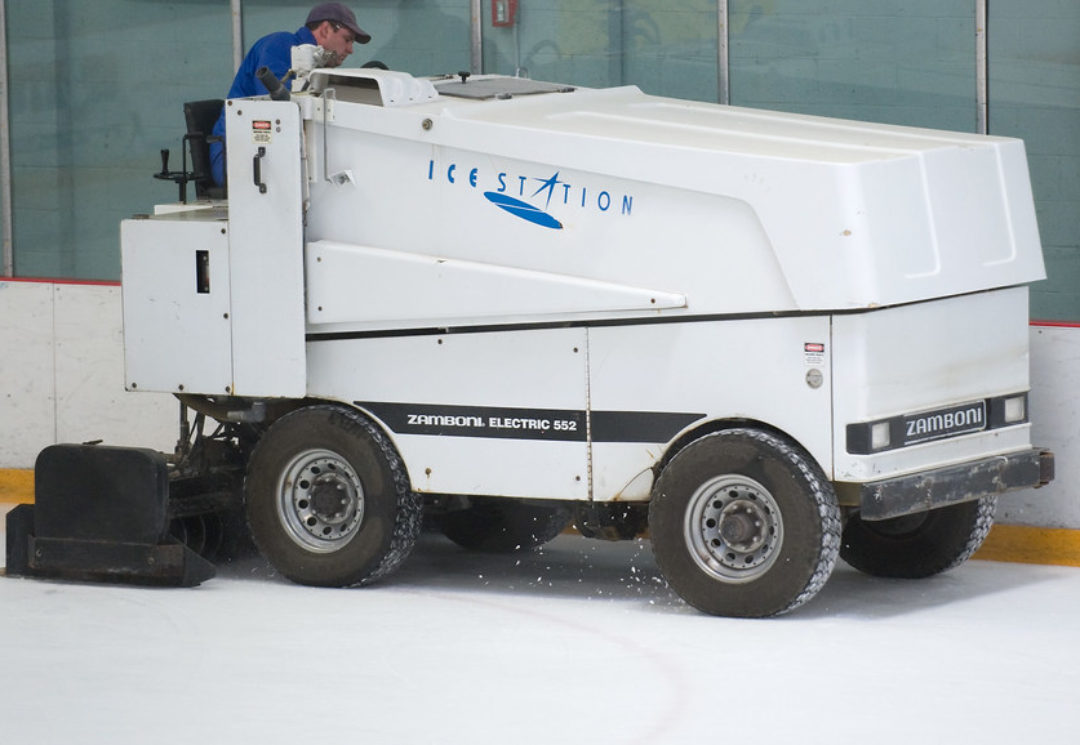
Sad but true. There were some epic meltdowns this year!